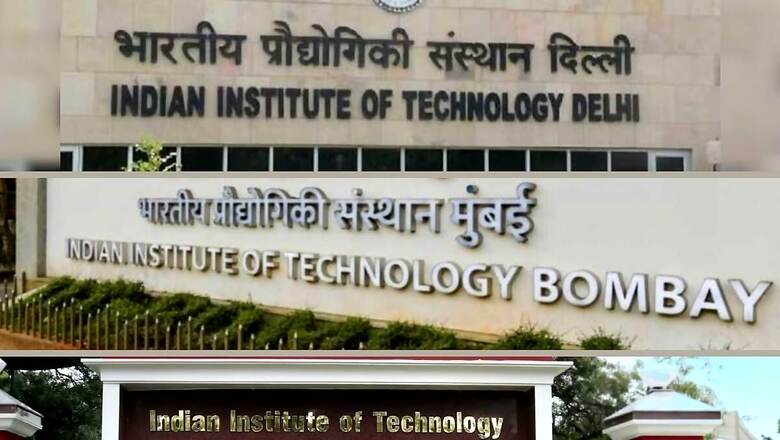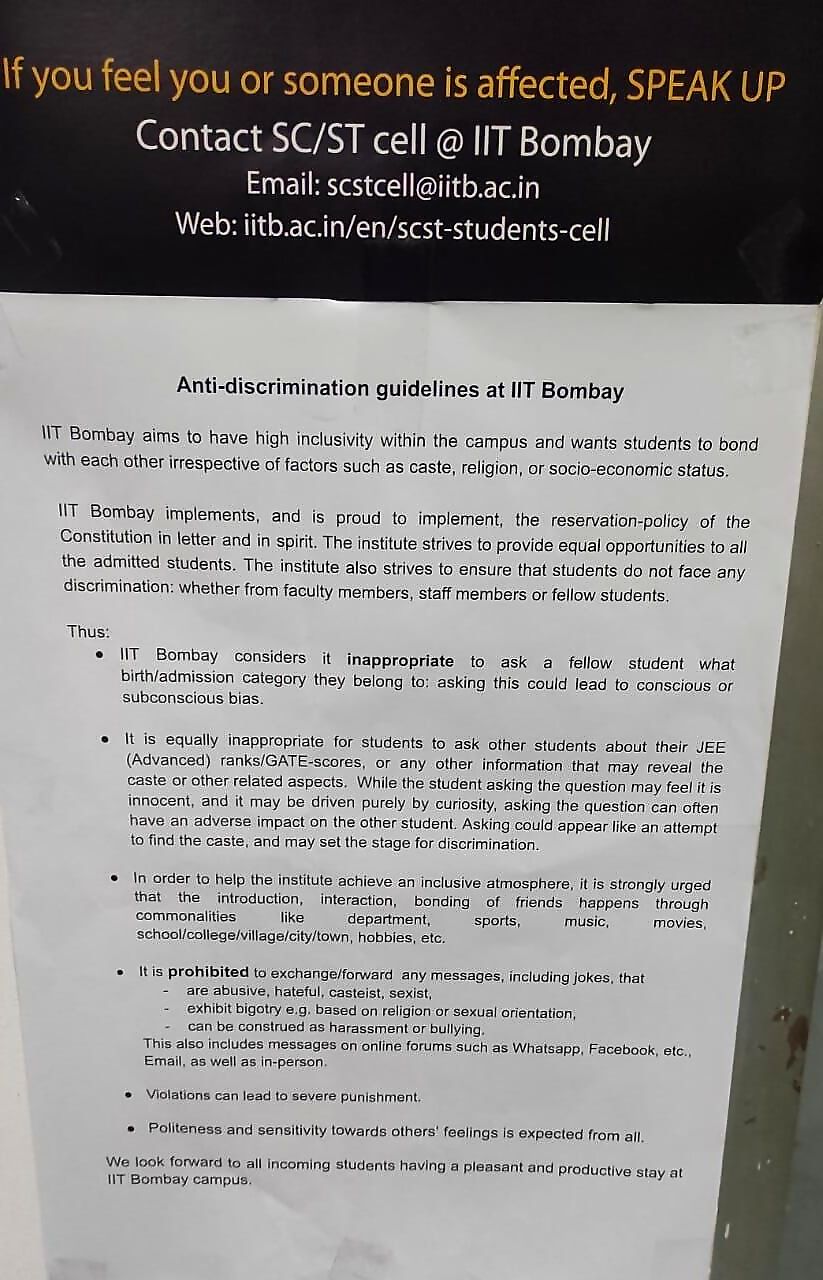
views
From dedicated ‘listeners’ to hear students out and changes in evaluation system to third-party counselling and a record of students who haven’t met faculty, premier Indian Institute of Technology (IITs), hit by student suicides on campus post pandemic, are taking several preventive measures. Among the other steps are increased ‘open house’ interactions, setting up of panels to check caste bias and roping in family members to help engage with students facing any mental health issues.
This year, by July, 20 student suicides have been reported across top-ranking higher education institutes, of which seven are from different IITs. Of these, five took place at IIT-Madras, while one each has been reported at IIT-Bombay and IIT-Delhi.
With 39 such deaths being reported at various IITs between 2018 and 2023 (till date), the premier technical institutes have seen the highest number of student suicides on campus, among other institutions, according to data shared by the Ministry of Education (MoE) in Parliament in the ongoing monsoon session. Last year, when most campuses opened up fully post-pandemic, 24 such deaths were reported, the highest number of student suicides during this five-year period, data shows.
These institutes have been working on understanding the reasons and the efforts that can be taken to curb such incidents.
The University Grants Commission released the Redressal of Grievances of Students Regulations, 2023, in April, which mandates that all higher education institutions will include one member from a marginalised caste or tribe, and one woman, in their student grievance redressal committees (SGRC). This panel is to be formed by every such institute to deal with student complaints.
IIT-MADRAS: 10-PRONGED STRATEGY
IIT-Madras, which has been the most affected campus this year so far, has initiated a 10-pronged strategy which includes measures such as quick grievance redressal, keeping record of students who haven’t met faculty since joining, appointing faculty, alumni as dedicated listeners to listen to students vent out personal problems (also available on Whatsapp), gatekeeper training of faculty, counsellors to help first-year students ahead of new academic session, making third-party counselling available for students, as they have stigma sharing problems with faculty on campus; a comprehensive mental health survey of students, parents; panel to check caste bias; facial recognition for class attendance for data analysis; and making parents talk to students at least twice a week for emotional support.
Prof V Kamakoti, director, IIT-Madras, said the pandemic disrupting the student-faculty interaction for two long years was the major reason behind a high number of students taking such extreme steps. “The effects of this massive gap were felt as soon as campuses opened in 2022-23, when students returned to physical classes and had difficulty adjusting to the IIT environment. It took me a year to understand how the students have been affected owing to not having any connect with peers or teachers during the pandemic and the toll it took on them. We have started work on this new strategy, which is yielding a good response and I feel will help in tackling the situation to a large extent," he said.
IIT-BOMBAY: NO TO CASTE BIAS
IIT-Bombay, which saw allegations of caste-based discrimination on campus following the death of a first-year Dalit student Darshan Solanki by suicide and a long police investigation into the matter, has strengthened its counselling services on campus and also issued a notification to students a few days ago not to ask their fellow students about their JEE Advanced rank or Gate scores or any such information that may reveal caste or any related aspects.
The notification, which has been pasted outside hostel rooms and other student corners, said it is “inappropriate" to ask fellow students any such question that may come out as an attempt to reveal their caste and instead “bond through activities and interests such as sports, music, movies, books, etc".
“Each year, in the orientation session for new UG and PG entrants, various institute bodies/cells have always emphasized the ‘zero tolerance policy’ that IIT Bombay follows towards any form of discrimination. Each hostel and department/centre, too, have had posters from various cells. This year, the content from various cells posters/orientations, in the context of anti-discrimination, has been compiled into one poster. This is also being circulated by the institute towards both new and existing students," said an IIT-Bombay spokesperson.

IIT-DELHI: OPEN HOUSE, NEW EVALUATION SYSTEM
IIT-Delhi, on the other hand, has increased frequency of its ‘open house’ interactions with students, besides approving a new evaluation system ahead of the new academic session, which will start from August.
“We used to have a two-minor plus one-major examination evaluation system. Based on feedback from all students and faculty, the Senate has approved a one-minor plus one-major examination evaluation system, along with several continuous evaluation mechanisms from the upcoming semester onward. A maximum cap of 80% weightage has been kept for the two examinations," said an IIT-Delhi spokesperson.
For better student-faculty bonding, the institute has started facilitating interactions via academic-domain-independent and academic-domain-dependent faculty mentorships. Also, in another important step, the institute has been encouraging interactions through increased frequency of periodic informal dinners/meals between students and faculty in small groups through the existing Student Teacher Interaction Council.
“It is important to note that there is no one-size-fits-all solution to the challenges associated with stress management and ensuring individual mental well-being. However, having increasingly adaptable support systems, a humane approach, early identification and intervention mechanisms, collective efforts from all stakeholders in the system, and open and constant communication are some efforts that can help minimise the chances of the occurrence of unfortunate events," said a senior IIT-Delhi faculty member.




















Comments
0 comment